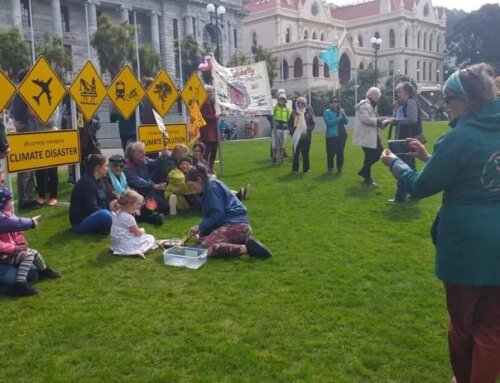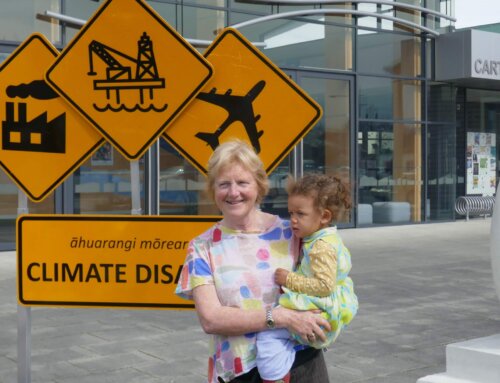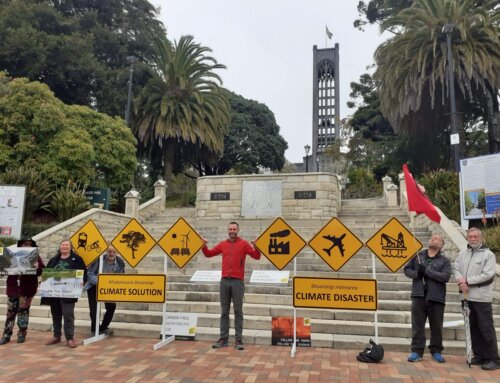The Election Roadshow for Climate, an initiative of Extinction Rebellion (XR) supported by Aotearoa Climate Emergency (ACE), has been making waves in Palmerston North in its attempt to put climate and ecological change at the forefront of this election.
The Roadshow, which started concurrently from Bluff and Cape Reinga on Monday, is promoting three election issues: the declaration of a national climate emergency; a Citizens’ Assembly on climate next year; and a green post-COVID-19 economic recovery plan.
In Palmerston North, the North Island contingent of the roadshow visited He Ara Kotahi Bridge to talk with local resident Philip McConkey. Philip, 78, is a retired social worker who has been engaged with social justice issues for much of his life. Philip regards climate change as the greatest social justice issue in history, not just for humans but for all living species.
“Every living being, plants, animals, humans have the right to live. But so many of our actions and beliefs compromise this right. This is what I see as being a fundamental injustice. This is what drives me.”
When asked about what needs to be done to address climate change, Philip had ideas that resonated with the audience present.
“The very first thing to do is to acknowledge where we are at, as a species and as a planet. We need to tell the truth. Only when we tell the truth can we start doing anything about it. That’s why I’m a part of Extinction Rebellion. The government has a primary responsibility to its citizens to tell the truth and to act on the truth.”
That truth is a difficult message to hear. A massive loss of biodiversity around the globe, sea level rise, food insecurity and the creation of 200 million climate migrants by 2050. The world’s oceans will see a 150% increase in acidity and over a full degree Celsius in warming. This well down the path to the Permian Extinction where 96% of marine species disappeared forever. Insects are disappearing at a rate of about 2.5% of their biomass every year. These are our pollinators, our links in our food chain. These represent the basic functioning of every terrestrial ecosystem, and still, the silence is deafening from our politicians and leaders.
“Very little has been done about climate change,” says Philip. “The idea of a Citizens’ Assembly is a deliberate and intentional attempt to help governments be informed about what their population is thinking about. Of course, we have mechanisms in place for this already but a Citizens’ Assembly would give a strong way forward to channel those ideas.”
Citizens’ Assemblies are a way to break political deadlock over contentious issues. France has recently adopted a Citizens’ Assembly on Climate and French president Emmanuel Macron has accepted all but three of the 149 recommendations that have been proposed.
Philip was joined by speakers Robert McLachlan from the Massey University School of Fundamental Sciences and Ranvir Singh from the Farmed Landscapes Research Centre. Both Robert and Ranvir spoke about the health of the waterways in the Manawatu-Wanganui region, and in particular about the Manawatū River, which was rated as having the poorest possible health out of the categories listed in the National Water Quality standards.
“Fixing our rivers is another one of these difficult environmental issues,” says Robert. “It’s a bit like fixing climate change in that everyone will have to work together – and also in that everyone will get to experience the benefits of working together.”
The roadshow continues in Hawkes Bay in the North and Westport in the South.





